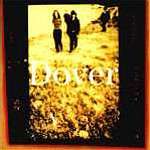Serenade (Dover song)
"Serenade" is a song by the Spanish rock band Dover. Written by Cristina Llanos, the track was released in 1997 as the first single from the band's second studio album, Devil Came to Me (1997). This song was the first single that also became his first number one because of its rhythms and catchy chorus. It is the most chanted song in their concerts, making it an anthem for this group.[1][2]
| "Serenade" | ||||
|---|---|---|---|---|
 | ||||
| Single by Dover | ||||
| from the album Devil Came to Me | ||||
| B-side | "Devil Came to Me" | |||
| Released | April 21, 1997 | |||
| Recorded | February 1997 | |||
| Studio | Infinity Studios, Madrid | |||
| Genre | ||||
| Length | 3:54 | |||
| Label | Subterfuge | |||
| Songwriter(s) | Cristina Llanos | |||
| Producer(s) | Dover | |||
| Dover singles chronology | ||||
| ||||
Curiosities
The singer, guitarist and composer of the theme, Cristina Llanos, admits it's the most personal song she ever wrote. She is usually very shy and reserved and wanted to talk about it in this song, "asking" help to stop being so.
Appearances
- Serenade was chosen for the PlayStation 2 video game "SingStar Rocks!", among other songs by Spanish and international groups.
- In 2008, a remix of the song, with the name "Serenade 07", became a single in the album 2.
Music video
The music video for this song was made by Juan Bullón, a friend of the band with whom they previously worked in the video for "Come With Me" from the first album "Sister".[3]
Track listing
All tracks are written by Cristina Llanos.
| No. | Title | Length |
|---|---|---|
| 1. | "Serenade" | 3:54 |
| 2. | "Devil Came to Me" | 4:36 |
| Total length: | 8:30 | |
References
- González-Barba, Andrés (10 May 2013). "Reedición en directo de "Devil Came to Me"" (in Spanish). ABC.
- R. Blanco, Patricia (13 November 2006). "Dover consigue su cuarto número 1" (in Spanish). Los 40 Principales.
- "Dover - Serenade - YouTube". 1997.